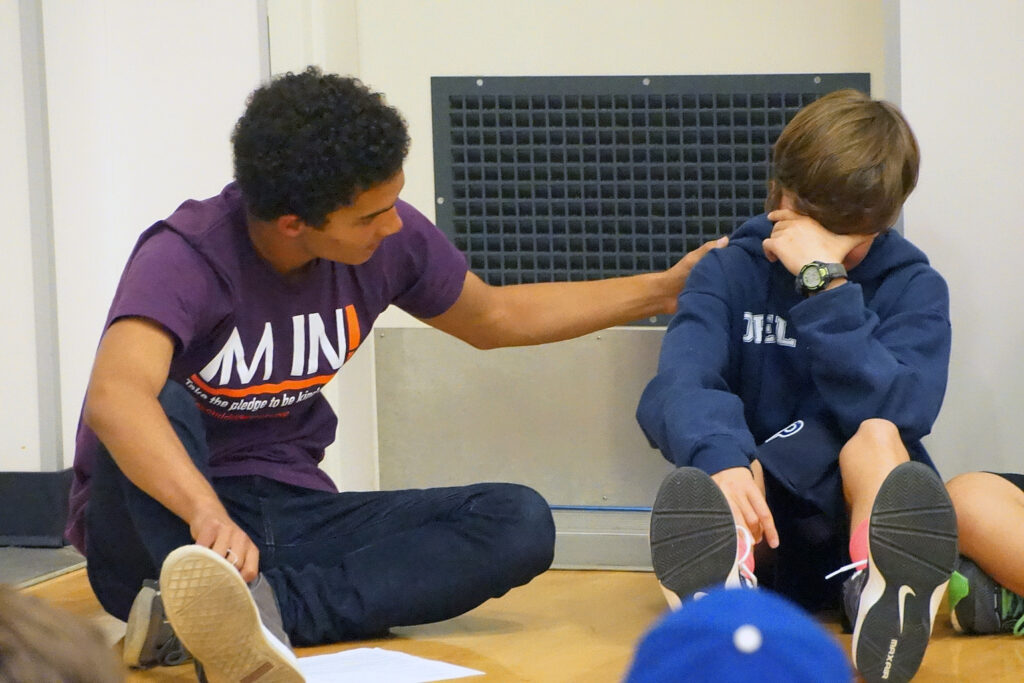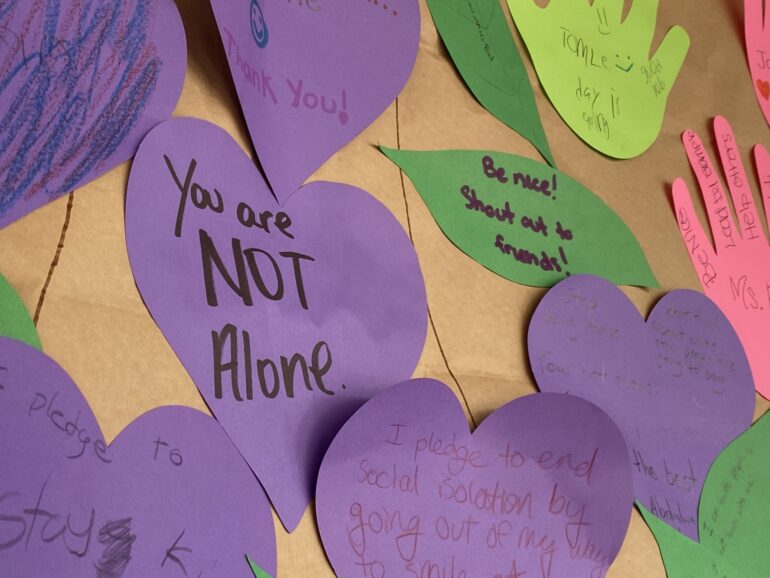If you have a child that is showing signs of feeling anxious, overwhelmed or just plain out-of-sorts these days, you are not alone. The pandemic has amplified mental health distress for youth; a recent University of Calgary study found that symptoms of anxiety and depression have doubled in kids—particularly in older adolescents and girls—since the start of the pandemic in early 2020.
Most kids won’t raise their hand and blurt out ‘Hey, I’m feeling really anxious or down right now,’ so it’s often up to the parents or other family members to look for the signs that something isn’t quite right, and notice behavior that indicates a child might be asking for help and may not even know it.
COVID and Its Impact on School Life
“While most kids have been eager to get back into classrooms and to reengage with friends, we are definitely seeing some kids who are feeling socially anxious or even upset that they can’t participate in virtual school any longer,” said Dr. Michael Enenbach, a Bay Area based child psychiatrist and clinical director with the Child Mind Institute. “Yet, kids may not even be fully aware that something is off. Teenagers in particular can be challenging to decipher, as they are going through so many changes during adolescence as-is, so it can be tough for parents to know what’s normal and what needs to be probed further.”
A recent poll in California found that three out of four middle and high schoolers feel concerned about contracting COVID-19 on campus, in addition to experiencing apprehension about academic achievements and socializing with friends. The same poll revealed more students are speaking up about their concerns and discussing their mental health with others, including friends, parents, teachers and mental health professionals.
But, expressing concerns and having full-blown anxiety isn’t necessarily the same. “What we are seeing is that kids aren’t developing ‘new’ anxieties directly tied to COVID and going back to school,” said Dr. John Walkup, Chair of the Pritzker Department of Psychiatry and Behavioral Health at Ann and Robert H. Lurie Children’s Hospital of Chicago. “We’re seeing untreated kids, who are already vulnerable to anxiety, experience worsening symptoms associated with going back to school and fear of getting sick or getting others sick.”
Spotting Anxiety in Children

The triggers for intense, anxious feelings differ according to age; after all, kids are constantly evolving and growing throughout their childhood years. Younger children are usually triggered by external stimuli, such as the dark, imaginary monsters, or being away from their parents, whereas teens are more worried about themselves, their academic performance and being socially accepted by others.
“Acknowledgment and validation is so important to teens dealing with anxiety around school and fitting in, and the pandemic added more stress to the situation,” says Laura Talmus, co-founder of Beyond Differences, a nonprofit whose mission is to inspire youth to end social isolation and create a culture of belonging. “Parents have a tendency to want to fix any problems and may default to asking questions that elevate stress and anxiety, such as what’s wrong? Instead, they should ask what happened? and how can I support you?“
Dr. Enenbach points out a few signs for parents to take notice of—if a child or a teen is having trouble concentrating in school, abruptly changes his or her behavior, withdraws from friends and social situations, constantly asks for reassurance, has difficulty sleeping—these are all signs that something could be amiss. Online symptom checkers can also be useful tools to parents to figure out if they need to have their child evaluated by a professional.
Making a Case for School ‘Mental Health Days‘
Along with the rise in anxiety and depression among school children, there is increasing support for new ways to address it. In the past two years, several states have adopted mental health days for students who need to get away from stress and tone down anxious feelings. Arizona, Oregon, Colorado, Connecticut, Maine, Nevada and Virginia now allow them — and Illinois and California both joined the fold with newly passed legislature. Illinois will begin excused mental health days in January 2022 and California just passed a law on excused mental health days for students as well. Other states, like Florida, Maryland and Massachusetts, are still debating.
Along with supporting legislation for mental health days, California state Senator Anthony Portantino took things a step further by securing bipartisan support for a law that would make mental health education mandatory in all California public schools, as a means to increase awareness and reduce stigmas around mental health.
Yet, some experts view mental health days as enablers for children seeking to avoid school and the social anxiety that can accompany it. “Taking a day as a step back is okay if it results in two or three steps forward,” says Dr. Walkup. “The only potential downside is that it can function as a form of avoidance or escape, a dominant coping strategy of those with anxiety disorders.”
Mental Health Help is Out There
The most important rule of thumb for parents is pay attention to the signs and don’t hesitate to reach out to mental health experts for guidance. It’s estimated than one out of eight kids have a mental health issue, yet only one out of three kids ever receives professional treatment. Many mental health issues can be successfully treated with cognitive behavior therapy, which basically retrains the brain to think differently and approach situations from a new perspective.
“Let your gut be your guide,” adds Dr. Enenbach. “If you feel something might be wrong, the most important thing is to seek help.”
Information and resources for help with youth mental health:
- Ann and Robert Lurie Children’s Hospital of Chicago
- Child Mind Institute – San Francisco Bay Area
- National Alliance on Mental Illness
More from Better:
- How to Navigate and Resolve Family Conflicts — Strategies for Happy Family Life
- 6 Expert Education Tips to Help Your Child Thrive in their Learning Environment
- 8 Life-Changing Apps Created By Women
Donna Berry Glass is a freelance writer in Marin County who writes mostly about family and kid-oriented topics. When she’s not writing, she enjoys spending time with her family exploring the natural beauty of Marin, snuggling with her Cavalier King Charles spaniel while reading a good book or whipping up something delicious in her space-challenged kitchen. Donna is a supporter of the California Academy of Sciences, a world class science museum and research institution, and the Institute on Aging which provides much needed services to seniors and disabled individuals.


